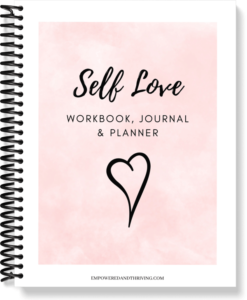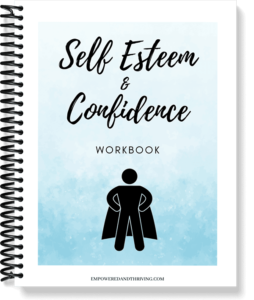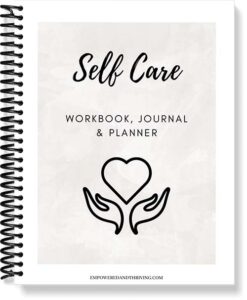My wife came to me the other day and asked me to write an article on how to stop being pushy. She is not pushy at all, so I was a bit curious. She said she is really afraid of being a nag and becoming pushy. Like her, many people may worry about being pushy in a relationship or in general. If you feel like her, or you really are a pushy person and want to change, here are some effective ways to stop being pushy.
Why Is It Important To Stop Being Pushy?
You should stop being pushy because it can damage your relationships with others, create resentment, and lead to conflict. Pushy people may find that others avoid them or become defensive around them, which can lead to a breakdown in communication and a loss of trust. By recognizing and changing pushy behavior, you can build healthier and more positive relationships with those around you, and create a more respectful and harmonious environment in both personal and professional settings. Ultimately, stopping pushy behavior will benefit both yourself and those you interact with on a daily basis.

What Does it Mean to be Pushy?
Being pushy means trying to force your own ideas or desires onto others. It can manifest in different ways, such as talking over someone, ignoring their wishes, or pressuring them to do something they don’t want to do. It can be challenging to recognize when you’re being pushy, especially if you’re used to getting your way or feel strongly about something.
Strategies To Stop Being Pushy
Article Continues Below Video
1 . Let Go Of Control

Being pushy may mean you have some control issues. If you do, you should work to let this habit go. Letting go doesn’t mean you do not care, it just means letting other people handle it. It’s okay if you do not have your hand in everything. If people mess up, they can learn from it. Let others make their own mistakes and make their own decisions.
2 . Stop Being Pushy by Respecting Boundaries

Respect is essential in any type of relationship, and it’s especially important when it comes to boundaries. Everyone has their own limits and preferences, and it’s important to recognize and honor them. If someone says they’re not comfortable with something, don’t push them to change their mind. Instead, try to find a compromise or respect their wishes.
3. Listen More, Talk Less

One of the most effective ways to stop being pushy is to listen to others more than you speak. When you take the time to hear someone else’s point of view, you’re more likely to understand their perspective and find common ground. Active listening involves paying attention to the speaker, asking questions to clarify their meaning, and reflecting back what you’ve heard.
4. Rephrase Your Words

Perspective plays a crucial role in determining whether you are being pushy or not. While you may consider your advice to be valuable, others may perceive it as pushy. If you genuinely have beneficial advice to offer and not merely trying to impose your views, consider using different phrasing. Instead of saying, “You should go to bed earlier tonight,” try asking, “Would you feel better if you went to bed earlier tonight?” By rephrasing your suggestion as a question, you empower the other person to make the decision. To stop being pushy, avoid using phrases such as “you should,” “I think,” or “I would.” Although your intentions may be good, your message can easily be misconstrued, and you may come across as pushy.
5. Avoid Interrupting To Stop Being Pushy

Interrupting someone during a conversation can be seen as a sign of disrespect and can be viewed as pushy behavior. When you interrupt someone, you’re essentially disregarding what they have to say, and this can cause them to feel disregarded and undervalued.
Interrupting others can also make it difficult for them to express their ideas effectively. When someone is interrupted, they may lose their train of thought, become frustrated, or feel that their contribution is not being given the necessary attention. Interrupting can lead to miscommunications and misunderstandings that can be difficult to correct once they’ve occurred.
6. Practice Empathy

Stop being pushy by practicing empathy. Empathy is the ability to understand and share the feelings of others. When you practice empathy, you’re more likely to recognize when you’re being pushy and can adjust your behavior accordingly. Try to put yourself in the other person’s shoes and imagine how you would feel if someone were treating you the same way.
7. Practice Assertiveness, Not Aggression

Assertiveness is a communication style that involves expressing your needs and desires in a direct and clear manner while still respecting the needs and desires of others. On the other hand, aggression involves forcing your ideas or desires onto others, which can be perceived as pushy or even hostile. By practicing assertiveness, you can express your views without being pushy, which prevents conflict and builds stronger relationships with others. Remember that assertiveness is not about getting your way, but about finding a mutually beneficial solution.
8. Be Open To Feedback

Being open to feedback is an important skill in personal and professional growth. When someone provides feedback, whether positive or negative, it’s a chance to reflect on your behavior, learn from your mistakes, and improve your future actions.
If someone tells you that you’re being pushy, it’s important to remain calm and non-defensive. Avoid making excuses, justifying your behavior, or dismissing their concerns. Instead, take a moment to listen carefully to what the person is saying and ask questions to clarify their perspective. This can help you better understand their feedback and what changes you need to make to stop being pushy.
Questions and Answers on Being Pushy
Q: What are some other signs of pushy behavior? A: Some other signs of pushy behavior include talking over someone, using aggressive body language, and disregarding others’ opinions.
Q: Can pushy behavior be a sign of anxiety or insecurity? A: Yes, pushy behavior can be a sign of underlying anxiety or insecurity. If you find that you’re consistently pushing others, it may be worth exploring these underlying issues with a therapist.
Q: Is it possible to change pushy behavior? A: Yes, it’s possible to change pushy behavior with practice and self-reflection
Conclusion
Being pushy in any relationship, either personal or professional, can have negative effects on communication and trust. Being pushy can create resentment and lead to conflicts, and people may avoid those who display pushy behavior. Recognizing and changing pushy behavior is essential to developing positive relationships with others. The strategies to stop being pushy include letting go of control, respecting boundaries, listening more and talking less, rephrasing your words, avoiding interrupting, and by practicing empathy. You can also be assertive without being aggressive, and be open to feedback. Stopping pushy behavior will benefit both yourself and those with whom you interact daily.
Have you ever been called pushy? Are you? Let us know in the comments below.









Leave A Reply